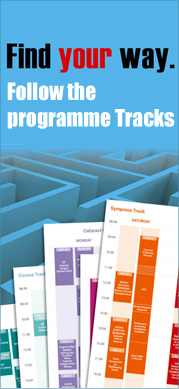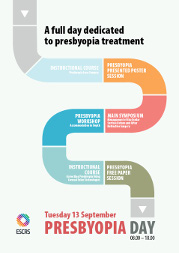Posters
National study of the peri-operative cataract cancellation protocols in the United Kingdom
Poster Details
First Author: I. Yip UNITED KINGDOM
Co Author(s): E. Samia-Aly A. Raj
Abstract Details
Purpose:
Currently consultants are left to cancel cataract patients at their own discretion. Studies show the most common reasons for cancellation are uncontrolled hypertension, diabetes and poor management of anticoagulants. The Royal College of Ophthalmologists’ (RCOphth) guideline on cataract surgery does not give detailed guidance on how to manage these factors peri-operatively.
The aim was to determine trends in current practice, in order to aid further studies and help formulate a guideline. Guidelines are important to avoid unnecessary cancellations especially in the current climate of increasing demand coupled with financial constraints, as well as impacting on patients’ quality of care.
Setting:
Consultants based in the United Kingdom were contacted to fill in an email survey, detailing their cataract cancellation practices.
Methods:
The survey was sent to all the ophthalmology consultants in the United Kingdom via email. Consultants and their emails were collated from their departmental websites. The online survey was created and sent through the website “Survey Monkey”.
The survey consisted of 21 questions in a multiple choice format with free text boxes to expand on any selections. The questions were designed to assess when consultants would cancel an operation based on a patient’s blood pressure, blood glucose reading, heart rate and anticoagulant medication.
Results:
Preliminary results from the first 100 respondents show that 50% have a departmental cataract cancellation protocol. With regards to blood pressure 90% would cancel based on high readings, of which 50% would cancel at above 180/110 mmHg. Only 40% would cancel due to heart rate with no trends identifiable within these responses. The majority of consultants, 80%, would cancel based on high blood glucose readings, generally above 15. 85% cancelled if a patient’s international normalised ratio (INR) was 3 or above, however 90% did not cancel patients on other anticoagulants such as rivaroxaban.
Conclusions:
Owing to the lack of current guidelines there is understandably variation in practice. Only 50% of respondents have protocols set within their own hospital suggesting there could be varying practice between consultants within individual hospitals. Blood pressure, INR and blood glucose are measures most consultants would cancel an operation for, however there is significant variation on the exact point of cancellation. The study has characterised current practice across the UK, which will aid further studies and help formulate a future guideline.
Financial Disclosure:
NONE





